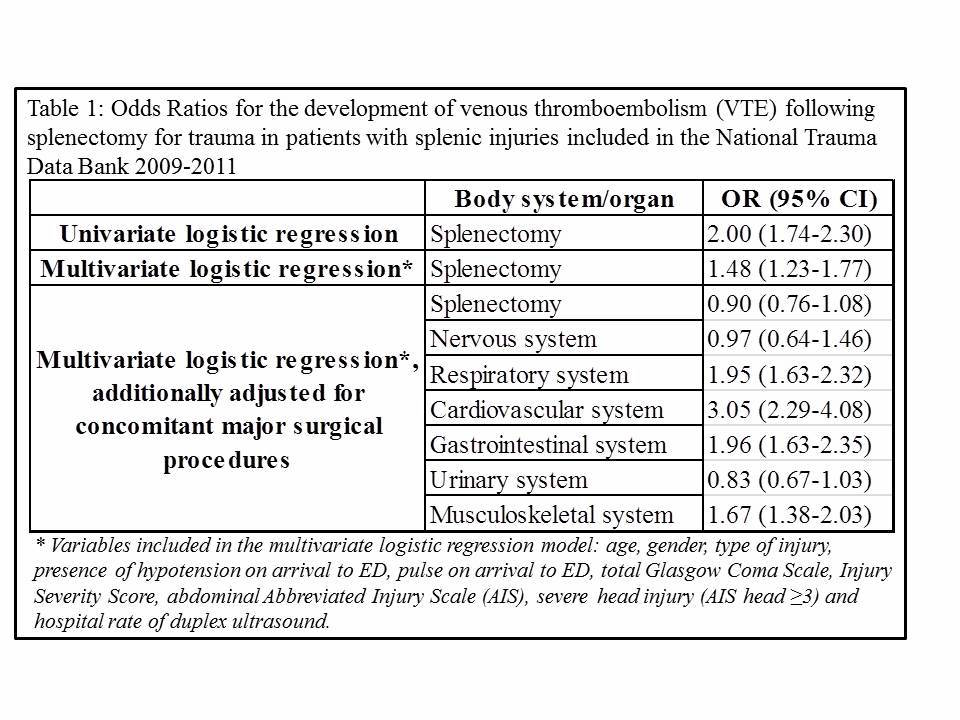S. Sheikh1, Z. G. Hashmi2, S. Zafar3, A. H. Tyroch4 1York Hospital,Department Of Surgery,York, PA, USA 2Sinai Hospital Of Baltimore,Department Of Surgery,Baltimore, MD, USA 3Howard University College Of Medicine,Department Of Surgery,Washington, DC, USA 4Texas Tech University Health Sciences Center,Department Of Surgery,El Paso, TX, USA
Introduction: Splenectomy is associated with an increased risk of venous thromboembolism (VTE) when performed for hematologic disorders. However, the risk of VTE after splenectomy for trauma remains largely unknown. The objective of this study was to determine the risk of VTE following splenectomy for trauma.
Methods: Adults with blunt/penetrating splenic injuries treated at Level I/II trauma centers included in the National Trauma Data Bank 2009-2011 were analyzed. The primary outcome was the development of a VTE. ICD-9-CM diagnoses codes were used to determine patients who underwent a splenectomy, as well as other major surgical procedures. Multiple logistic regression analyses, with VTE as the outcome, were performed, adjusting for patient level (demographics, injury severity characteristics, major surgical procedures) and hospital level factors (rate of hospital duplex ultrasound). Additional sensitivity analyses were performed stratifying by hospital length of stay and hospital duplex ultrasound rates.
Results: A total of 19,124 patients were included of whom 4,221 (22.10%) underwent a splenectomy. Only 198 (1.00%) patients underwent an isolated splenectomy. The overall VTE rate was 4.90% (932). On univariate and multivariate analyses, the odds ratios (95% CI) for the development of VTE were found to be 2.00 (1.74-2.30) and 1.48 (1.23-1.77), respectively. However, splenectomy was no longer associated with an increased risk of VTE when additionally adjusted for the presence of concomitant major surgical procedures [0.90 (0.76-1.08)]. Additional sensitivity analyses revealed qualitatively similar findings.
Conclusion: Splenectomy, in the presence of concomitant major surgical procedures, does not confer an additional risk of a VTE event.
